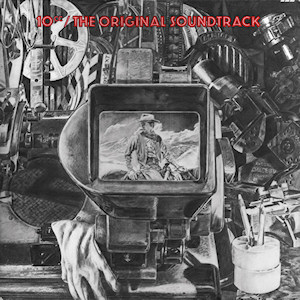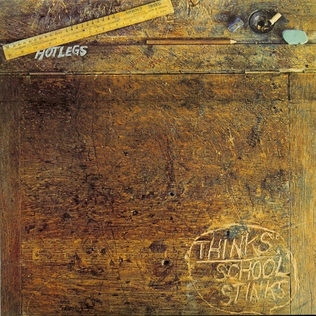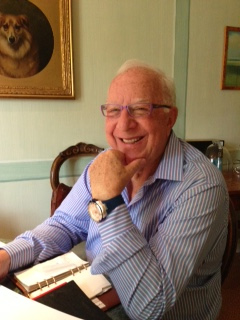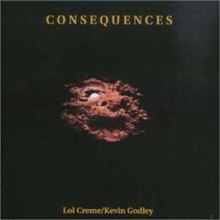
10cc are a British rock band formed in Stockport in 1972. The group initially consisted of four musicians – Graham Gouldman, Eric Stewart, Kevin Godley and Lol Creme – who had written and recorded together since 1968. The group featured two songwriting teams. Stewart and Gouldman were predominantly pop songwriters, who created most of the band's accessible songs. Godley and Creme were the predominantly experimental half of 10cc, featuring art and cinematically inspired writing.

Kevin Michael Godley is a British singer, songwriter, musician and music video director. He is known as the singer and drummer of the art rock band 10cc and later as part of collaboration duo Godley & Creme with Lol Creme.

Godley & Creme were an English rock duo formally established in Manchester in 1977 by Kevin Godley and Lol Creme. The pair began releasing music as a duo after their departure from the rock band 10cc. In 1979, they directed their first music video with the single "An Englishman in New York". After this, they became involved in the production of videos for artists such as Ultravox, the Police, Yes, Duran Duran, Frankie Goes to Hollywood, Huey Lewis and the News and Wang Chung, as well as directing the groundbreaking video for their 1985 single "Cry". The duo split at the end of the 1980s. Both have since been involved in music videos, TV commercials, and sporadic music projects.
The Gizmo, also called the Gizmotron, is an effects device for the electric guitar and bass guitar. It was invented in 1969 and patented by the English rock musicians Kevin Godley and Lol Creme in 1975, whilst they were members of the British rock group 10cc.

Eric Michael Stewart is an English singer-songwriter, multi-instrumentalist and record producer, best known as a founding member of the rock groups the Mindbenders with whom he played from 1963 to 1968, and likewise of 10cc from 1972 to 1995. Stewart co-owned Strawberry Studios in Stockport, England, from 1968 to the early 1980s, where he recorded albums with 10cc and artists including Neil Sedaka and Paul McCartney. Stewart collaborated with McCartney extensively in the 1980s, playing on or co-writing songs for McCartney's solo albums Tug of War (1982), Pipes of Peace (1983), Give My Regards to Broad Street (1984), and Press to Play (1986). Since 1980, Stewart has released four solo studio albums.

Graham Keith Gouldman is an English singer, musician and songwriter, best known as the co-lead singer and bassist of the art rock band 10cc. He has been the band's only constant member since its formation in 1972. Before 10cc, Gouldman worked as a freelance songwriter and penned many hits for major rock and pop groups, including the Yardbirds, the Hollies, Herman's Hermits and Ohio Express.

Hotlegs was a short-lived English band best known for their hit single "Neanderthal Man" in 1970. The band consisted of Eric Stewart, Kevin Godley, Lol Creme and – briefly – Graham Gouldman. In 1972, the band re-branded themselves as 10cc.

The Original Soundtrack is the third studio album by the English rock band 10cc. It was released in 1975 and peaked at number three on the UK Albums Chart. The Original Soundtrack includes the singles "Life Is a Minestrone", and "I'm Not in Love", the band's most popular song.

"I'm Not in Love" is a song by British group 10cc, written by band members Eric Stewart and Graham Gouldman. It is known for its innovative and distinctive backing track, composed mostly of the band's multitracked vocals. Released in the UK in May 1975 as the second single from the band's third album, The Original Soundtrack, it became the second of the group's three number-one singles in the UK between 1973 and 1978, topping the UK Singles Chart for two weeks. "I'm Not in Love" became the band's breakthrough hit outside the United Kingdom, topping the charts in Canada and Ireland as well as peaking within the top 10 of the charts in several other countries, including Australia, Germany, New Zealand, Norway and the United States.

L is the second album by Godley & Creme. It was released in 1978. At 34 minutes, it is less than a third as long as the group's previous effort, the ill-received triple concept album Consequences (1977). Despite this, L was also not received well commercially.

Sheet Music is the second album by the English rock band 10cc. It was released in 1974 on UK records, and yielded the hit singles "The Wall Street Shuffle" and "Silly Love". The album reached No. 9 in the UK and No. 81 in the United States.

Deceptive Bends is the fifth studio album by rock band 10cc, released in 1977. It was the first album released by the band after the departure of founding members Kevin Godley and Lol Creme and produced the hit single The Things We Do for Love.

...Meanwhile is the tenth studio album by the British rock band 10cc, released in 1992. It was the band's first in nine years and marked the brief comeback of the original 10cc members Kevin Godley and Lol Creme.

Freeze Frame is the third album by Godley & Creme. The album was recorded at Nigel Gray's Surrey Sound Studios, Leatherhead, Surrey. The cover art, designed by Hipgnosis, identifies the duo as 'Godley Creme'.

The History Mix Volume 1 is the sixth studio album by English duo Godley & Creme, released in June 1985 by Polydor Records. The album was a remix of songs spanning the career of Godley & Creme and their earlier bands, 10cc, Doctor Father and Hotlegs.

Thinks: School Stinks is the only studio album by English pop band Hotlegs. The album, featuring the band's hit single "Neanderthal Man", was recorded at Strawberry Studios in Stockport near Manchester and engineered by the studio's co-owners, Eric Stewart and Peter Tattersall.

Greatest Hits 1972–1978 is a compilation album by the English rock band 10cc

The Greatest Songs and More (Great Box) is a 4-CD box set by 10cc released in Japan in June 1991. The compilation includes singles, album tracks, and rare b-sides recorded between 1972 and 1983. Many of the tracks included were unavailable on CD elsewhere until re-issues of their later albums were released—also in Japan—in 2006. It is not known how many copies were produced, but over the years it has commanded high prices on the collectors market.

Harvey Brian Lisberg is an English talent manager and impresario, best known for discovering Herman's Hermits in 1963. In 1965, he signed songwriter Graham Gouldman, a founder member of 10cc, who Lisberg also managed, along with Godley & Creme, Tony Christie, Barclay James Harvest, Gordon Giltrap, Sad Café, Wax and others.

100cc is a compilation album by the English rock band 10cc.



















